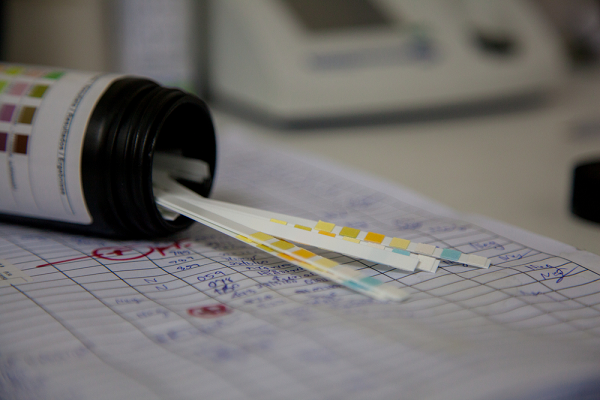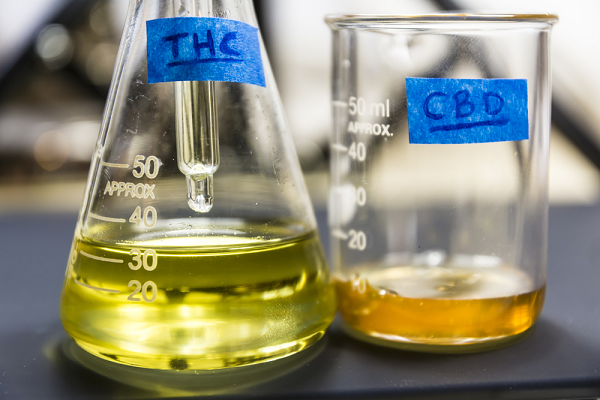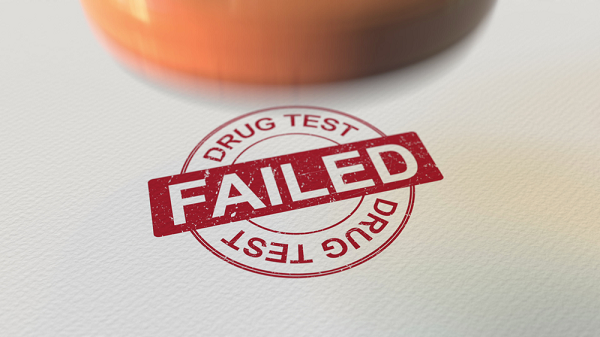So it’s the modern era in the USA, with cannabis products basically everywhere and hemp-derived CBD floating through just about every health store, beauty salon and dispensary. But some aspects have failed to catch up with all the movement such as employer and roadside drug testing. So where does that leave all of those who are chuffed with the current US cannabis movement and enthusiastic about CBD products?
While THC users will have to remain sensitive about drug testing, CBD users can rejoice. In some ways, CBD is like a glitch in the cannabis matrix. It isn’t detected on drug tests, doesn’t make a person high and still gives them basically all the benefits of cannabis. But that doesn’t mean there’s no risk of failing a drug test if you’re a CBD user. It’s all about knowing exactly what’s in the product that you’re purchasing. And in an industry as young and unregulated as cannabis, that can be a stretch.
Drug tests aren’t looking for CBD

To put it simply: law and enforcement and employers, for the most part, don’t care about what you do on the weekend or what medications you take to deal with whatever symptoms you experience. They don’t care if you’re taking a Vitamin D supplement or a medicated inhaler for your asthma. Their primary concern is whether or not you are fit to drive or do your job, and have identified a number of different substances that they can test for that may impair a person for work or driving. So it’s basically impractical for them to test for everything. Instead, they test for a select group of chemicals.
Most roadside and employer drug tests are looking for alcohol, amphetamines, opioids and THC. Drug tests are only designed to test for these specific chemicals, and everything else is fair game. When it comes to testing for cannabis use, drug tests are specifically made to detect THC and its metabolites. In fact, they don’t even detect THC. They detect a chemical called THC-COOH, which is a metabolite of THC that is created in the liver after different digestive processes take place. It can last in saliva for up to 12 hours and in urine for up to 3 months, depending on the frequency of use.
When it comes to testing for cannabis use, drug tests are specifically made to detect THC and its metabolites.
Naturally, CBD does not metabolize into THC-COOH, and so if CBD is being used, it is not detected on a random employer or roadside drug test. If, for any reason, somebody was looking for CBD in a person’s system, they would have to specially formulate a drug test for it.
But not all CBD products were created equal
CBD users must be breathing a sigh of relief right now. But don’t get ahead of yourselves; it’s not all fairies and unicorns for CBD users. At the end of the day, CBD products are made out of cannabis, in which THC is a naturally occurring compound. So that doesn’t mean that CBD products are THC free.
When CBD is derived from hemp, it contains negligible amounts of THC. This is because for hemp to be legally cultivated in the USA, it must contain .3% or less THC. However, the same isn’t true for marijuana, which is usually bred for its high THC content. From time to time, CBD products are manufactured from marijuana and therefore contain higher levels of THC.
It has happened in the past that somebody using a CBD product has failed a drug test and lost a job prospect as a result. This is because they were unknowingly consuming THC, which was then detected on a drug test. This is why it is important to know your CBD product before taking it if there is any fear of failing a drug test.
How to know you’re choosing pure CBD

So how does one mitigate this problem? Well, it’s all in consumer responsibility. The cannabis industry is as yet heavily unregulated due to how young it is. Things are slowly changing, and in some states such as California, manufacturers are required to label their products with cannabinoid profiles supplied by third party testers. But there are still many cannabis and hemp products circulating the USA that contain a mystery list of ingredients.
There are some things that consumers can do to ensure that they are consuming pure CBD and avoid accidentally consuming THC in the process:
1. Choose hemp-derived products
The first and most obvious thing a consumer can do is choose hemp-derived CBD products. If the hemp is grown locally, there is only a very small likelihood that it will contain THC concentrations high enough to be flagged on a drug test. Most manufacturers will advertise where their CBD extract comes from and choosing a locally grown product minimizes the risk.
2. Ask for a third party certificate of analysis (COA)
In some states, a third party COA is required by law. This is a document provided by a laboratory which has tested a sample of the product contained in the packaging. The certificate states which cannabinoids and terpenes are present and their respective concentrations. It also tells the consumer which, if any, industrial contaminants are present in the product.
Not all manufacturers are going to provide a COA. If they don’t, move right along. There are many manufacturers who do, even if they are not required by law. It is better to choose companies which provide a COA, as the consumer gets the clearest idea of what they are consuming.
3. Use CBD isolate instead of CBD oil
The final way to mitigate an accidental THC consumption is to purchase CBD isolate instead of CBD oil. Most consumers don’t consider this as an option, because for the most part, CBD users have no real need for something as concentrated as CBD isolate. It is essentially pure CBD in the strictest sense, coming in the form of a crystalline powder. It is virtually pure, most often measuring in higher than 99% CBD. It can be dissolved in a carrier oil such as fractionated coconut oil or hemp seed oil and them consumed, or can be consumed as it is, or can even be sprinkled on food or in smoothies.
If you are consuming pure CBD, there is no reason why you should fail a drug test. That is until for some strange reason law enforcements starts adding it to the list of chemicals that they are testing for, although that seems unlikely. It is really important for consumers to take responsibility for what they are consuming, especially in the modern era of cannabis legalization. This is the only – and most effective – way of passing a drug test!


Comments are closed.